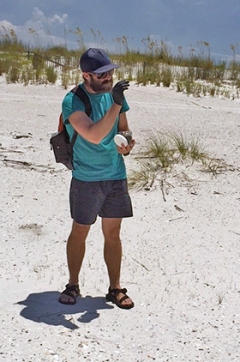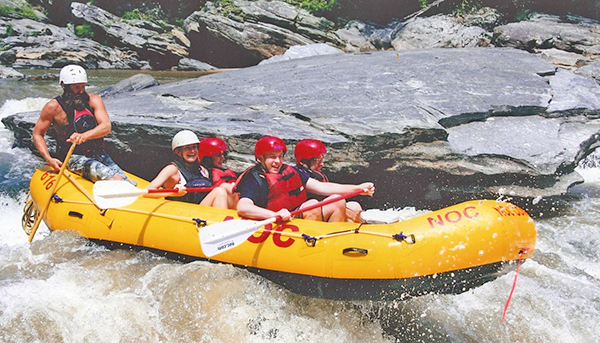Knauss legislative fellowships in Congress help build careers — and they're fun and educational. See our video and fact sheet for details.
My Nontraditional Path to Science Started Outdoors
I was never very interested in science. Outdoor activities like surfing and kayaking, sports, music – these activities captivated me as an adolescent and into early adulthood. School, and especially science, did little to hold my attention. My teachers told my parents, “Such great potential, if only he would fulfill it.”
So how did I go from someone generally uninterested in school and science to become a Ph.D. student studying environmental science? Despite the considerable time I’ve spent pondering this question, I’m not sure there’s a simple answer.
My mom died seven years ago, succumbing to a cruel neurodegenerative disease. I was a month shy of turning 23 and was on hiatus from a five-year journey towards a two-year degree. I was on a path towards a life unfulfilled, continuing to not achieve my potential. But, after my mom’s death, I replaced apathy with effort and decided to prove my potential.
Newly resolved, I re-enrolled at a small community college and eventually transferred to the local university, Western Carolina University. I was resolute to parlay my passion for the outdoors, primed through years surfing, whitewater raft guiding, and hiking, into a career as a park ranger. I was on track to graduate with a B.S. in parks and recreation management within a year when I abruptly changed majors and began studying science education.
|
My previous job guiding rafting trips made me interested in studying the environment. Here, I (at left) guide a raft on the Chattooga River, on the border between Georgia and South Carolina. Photo Credit: Chris Lakey |
At that time, I had completed a single college-level science course. In response to questions from friends and family members, I rationalized my switch by citing a simple fact: there was a huge discrepancy between the amount of time I had spent outdoors and the extent of my knowledge of how these environments and ecosystems function. Going into the science education program, I was genuinely excited to learn about the environments I loved and in turn to share my passion with high school students.
See all posts to the Fellowship Experiences blog




